Muscle recovery is a critical component of any fitness journey. Without adequate recovery, performance can stagnate, and injuries can occur. Peptides have emerged as a promising solution to accelerate recovery, enhance muscle growth, and improve overall fitness outcomes.
This article explores peptides’ role in muscle recovery, highlights the best peptides available, and provides guidance on how to use them effectively to achieve your goals.
What Are Peptides and How Do They Work?
Understanding Peptides
Peptides are short chains of amino acids linked by peptide bonds naturally occurring in the body. These small but mighty molecules play a vital role in numerous biological processes, including cell signaling, tissue repair, and hormonal regulation. In the fitness world, peptides are known for their potential to:
- Increase lean muscle mass.
- Reduce body fat.
- Improve endurance and strength.
- Speed up recovery times between workouts.
When used as supplements, peptides can provide athletes and fitness enthusiasts with the edge needed to optimize performance and recovery.
The Mechanism of Peptides in Muscle Recovery
Peptides act by stimulating the pituitary gland to produce growth hormones and insulin-like growth factor-1 (IGF-1). These hormones are essential for muscle repair and growth.
Additionally, peptides can reduce inflammation, improve nutrient absorption, and enhance protein synthesis. These combined effects make them an invaluable tool for muscle recovery and overall health.

The Role of Peptides in Muscle Growth and Recovery
Peptides for Muscle Growth
Muscle growth and recovery rely heavily on the body’s ability to synthesize proteins. Peptides boost this process by:
- Encouraging the release of growth hormones to promote muscle growth.
- Promoting faster tissue repair.
- Reducing oxidative stress caused by intense exercise.
- Stimulating protein synthesis, which is vital for repairing and building new muscle tissue.
Peptides and Joint Health
Some peptides, such as BPC-157, also support joint health by repairing connective tissues and reducing inflammation. This makes them ideal for athletes dealing with joint stress from heavy resistance training.
Top Peptides for Muscle Recovery
Muscle building peptides play a crucial role in enhancing muscle gain and recovery, making them a valuable supplement for bodybuilders and athletes. While many peptides are available, the following three are considered the best for muscle recovery:
BPC-157
BPC-157 is a synthetic peptide derived from a natural stomach protein. It is renowned for its regenerative properties, including:
- Healing injuries.
- Reducing inflammation.
- Accelerating muscle recovery after intense workouts.
Its ability to repair tissues makes it particularly effective for athletes recovering from strains, tears, or overtraining.
TB-500
TB-500 is a synthetic version of thymosin beta-4, a naturally occurring peptide in the body. It works by:
- Enhancing tissue repair.
- Reducing inflammation.
- Improving flexibility.
Athletes often use TB-500 to recover from injuries faster and maintain their training schedules.
GHK-Cu
GHK-Cu, a copper-based peptide, is well-known for its anti-inflammatory and antioxidant properties. This peptide supports recovery by:
- Reducing muscle soreness.
- Promoting tissue regeneration.
- Boosting overall cellular health.
Its versatility makes it a valuable option for those looking to enhance both recovery and general well-being.

Benefits of Using Peptides for Muscle Recovery
Faster Recovery Times
Peptides help reduce muscle soreness and inflammation, allowing athletes to train more consistently. This faster recovery also minimizes the risk of overtraining.
Improved Nutrient Absorption
By enhancing nutrient absorption, peptides ensure that muscles receive the essential building blocks required for repair and growth.
Enhanced Muscle Growth
Peptides stimulate protein synthesis and stimulate muscle growth, a critical process for muscle building. They also support joint and connective tissue health, which is essential for sustained physical activity.
How Peptides Support Muscle Recovery and Growth
The Role of Amino Acids
Peptides consist of amino acids, the building blocks of proteins, which support muscle growth. These amino acids are crucial for:
- Repairing damaged muscle fibers.
- Facilitating tissue regeneration.
- Supporting overall muscle recovery.
By improving protein synthesis, peptides make the recovery process more efficient.
Joint and Tissue Support
Peptides not only enhance muscle recovery but also support joint and connective tissue health. This dual benefit is particularly valuable for athletes engaged in high-impact or heavy lifting activities.

Potential Side Effects and Risks of Using Peptides
Common Side Effects
While peptides are generally safe, they may cause some minor side effects, including:
- Increased appetite.
- Fluid retention.
- Elevated blood sugar levels.
How to Use Peptides for Optimal Muscle Recovery
Dosage and Administration
The appropriate dosage depends on the specific peptide and individual goals. Peptides can be administered in two primary ways:
- Oral Supplements: Convenient but less effective for some peptides.
- Injections: Offer quicker absorption and more targeted results.
Choosing the Right Peptide
When selecting a peptide, consider your fitness goals and recovery needs:
- For rapid healing: BPC-157 or TB-500.
- For overall recovery and anti-inflammatory effects: GHK-Cu.
- For stimulating the production and release of human growth hormone (HGH): Growth hormone secretagogues (GHS).
Our team of healthcare experts at Rejuvenate HRT can help you find the right peptides for your individual needs and goals.

FAQs About Peptides for Muscle Recovery
Do Peptides Replace Exercise and a Healthy Diet?
No, peptides are not a substitute for hard work and proper nutrition. They are most effective when used alongside a structured workout routine and balanced diet.
How Long Do Peptides Take to Work?
The effects of peptides can vary. Some users notice improvements within a few weeks, while others may require several months of consistent use.
Are Peptides Safe?
When used responsibly and under professional guidance, peptides are generally safe. However, it’s essential to be cautious of counterfeit products and improper administration methods.
Peptides for Muscle Growth: A Game-Changer
Peptides represent a significant advancement in fitness and recovery science. By stimulating protein synthesis, improving nutrient absorption, and reducing inflammation, they enable athletes to achieve their fitness goals more efficiently.
Peptides like CJC-1295 and Sermorelin play a crucial role in stimulating the production of growth hormone, which is essential for muscle growth and recovery. Whether you’re recovering from a tough workout or seeking to optimize your training, peptides can provide the support needed to unlock your full potential.
The Best Peptide for Muscle Recovery Conclusion
Peptides offer a powerful solution for enhancing muscle recovery and growth. With their ability to accelerate healing, reduce soreness, and support tissue repair, they are a game-changer for fitness enthusiasts and athletes alike.
By understanding how peptides work and choosing the right ones for your goals, you can maximize their benefits and take your recovery to the next level. With peptides in your recovery toolkit, you’ll be better equipped to achieve your fitness aspirations.
Set up a consultation today with one of our healthcare experts!


